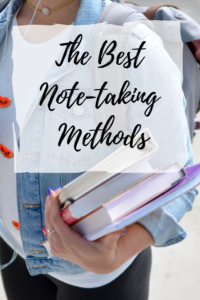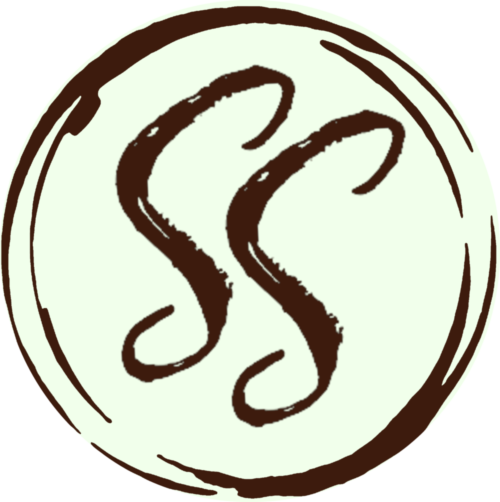
We’ve talked about How to Use a Syllabus Like a Genius. Now we cover the best note-taking methods. Everyone is familiar with the idea of taking notes, but I don’t see many of us using them to their greatest potential. I know I certainly didn’t for a long time. I hope to address the issue of the best note-taking methods in this and the next post.
What notes ARE…

First, let’s talk about what notes are and are not. Webster says that notes are “a condensed or informal record: a brief comment or explanation.” Notes are meant to be a sort of summary of the most important information. They’re there to help you recall information you’ve just learned until you don‘t need the notes anymore. When you‘re learning anything new, you come up with many ways to remember this new info. Think of remembering the colors of the rainbow by learning roygbiv. However, once you really understand the topic (and use that info on a regular basis), you no longer need the notes. That’s the goal in a class, but time constraints make it a challenge (not an impossible one, though). We continue to use the notes at least through testing, which is expected.
What notes are NOT…
…a transcript of every word the instructor says or every word you’ve read in a text. That defeats the whole purpose of taking the notes. They are not meant to be crammed at the last minute or to stress you out while studying. I plan to help with that part if you’re willing to work with me! They are not a detailed explanation of a concept, though they can start out that way when you’re first learning something.
How do you learn?

We’ll talk about a few different note-taking methods, but what you choose could be influenced by the kind of learner you are. Some don’t put much stock in knowing your learning style, and I understand that; you should be able to adapt to many situations. However, I’m of the opinion that if something is helpful and doesn’t cause other problems, why not take advantage of it? The catch here is that in college, the professor isn’t going to present info in many different ways for many different learning styles. You’re an adult now, It’s YOUR job to adapt your life to the world around you, not the other way around. There are ways you can do that regarding classes and learning styles.
My example
I’ll use myself as an example. One test said I am a social/verbal learner. That should come as no surprise to anyone who’s ever met me. Lol. Of the tests I took, this result made the most sense. I really do understand things better when I can mull over them with others. Now, I can’t expect to do that in the middle of class, but I can easily do it in a study group or with VERY understanding friends. Knowing your learning style may give you another way to expose yourself to the material that helps you to internalize it better.
In the next post, we’ll look at the most common note-taking methods. Then we’ll look at how to use notes in the best way to help you learn a subject.
Find out your learning style and leave it in the comments. Also, how you might be able to adapt your notes/classes to that style.
